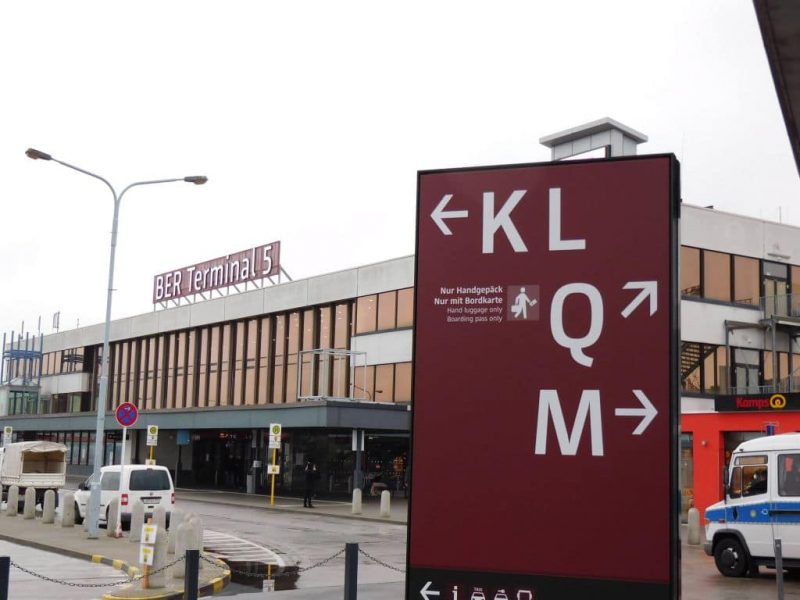The Berlin airports Schönefeld and Tempelhof have a very dark chapter in their respective stories. While this is largely known and partly obvious at the former inner-city airport, only a few remember the armaments production of Henschel in Schönefeld.
Flughafen Berlin Brandenburg GmbH is based on the former site of the Henschel Flugzeug-Werke. Founded in 1934, the subsidiary of the Henschel & Sohn company from Kassel developed into one of the most important German armaments factories for combat aircraft and glide bombs during the Nazi era. In Schönefeld, aircraft, weapons and weapon systems were developed, tested and built that brought death and annihilation across Europe.
Little is known about this part of the history of the Schönefeld airport location. The airport company has therefore commissioned a team of historians to carry out scientific research into the site's Nazi past and would like to convey the results to a broader public. On Monday (August 16.08), she presented the book "In the service of the National Socialist War - The first airfield in Schönefeld" by the authors Prof. Dr. Harald Bodenschatz, TU Berlin, as well as Christoph Bernhardt, Stefanie Brünenberg and Dr. Andreas Butter from the Leibniz Institute for Spatial Social Research (IRS) Erkner. At the same time, an exhibition was opened under the same title in the Schönefeld administration building of the airport company.
In the publication, the structure of the Henschel aircraft works including the airfield, the military research and production there and the importance of the Schönefeld location in the armaments landscape of Berlin and its surrounding area are presented for the first time. In addition to an architectural-historical assessment of the buildings, an important focus is on military research and the production conditions in the Henschel aircraft works. The planes built in series in Schönefeld destroyed cities in Spain, England, Poland and the Soviet Union, killing not only soldiers but also many civilians. Forced laborers had to produce supplies for the German war machine in the Henschel works under inhumane conditions. For many of them, Schönefeld was a “place of horror” where hunger, illness and death were part of everyday life.
Engelbert Lütke Daldrup, Chairman of the Management Board at Flughafen Berlin Brandenburg GmbH: “Many of the buildings belonging to Henschel Flugzeug-Werke are still there today and are used by employees of the airport company on a daily basis. We are aware of the importance of this location for war, death and destruction across Europe. The history of the aviation location Schönefeld during the Nazi dictatorship must not be forgotten. So-called 'foreign workers' from the occupied territories, forced laborers, prisoners of war, women and girls from concentration camps had to produce supplies for the German annihilation machine that was destroying their own homeland under inhumane conditions. We want to educate about it and deal with it offensively. And we also want to send a signal: The Schönefeld aviation location and thus the new Berlin Brandenburg Willy Brandt Airport stand for peaceful coexistence between people, for freedom and solidarity, for tolerance and respect. "







 trail (for them it's free to use)
trail (for them it's free to use)